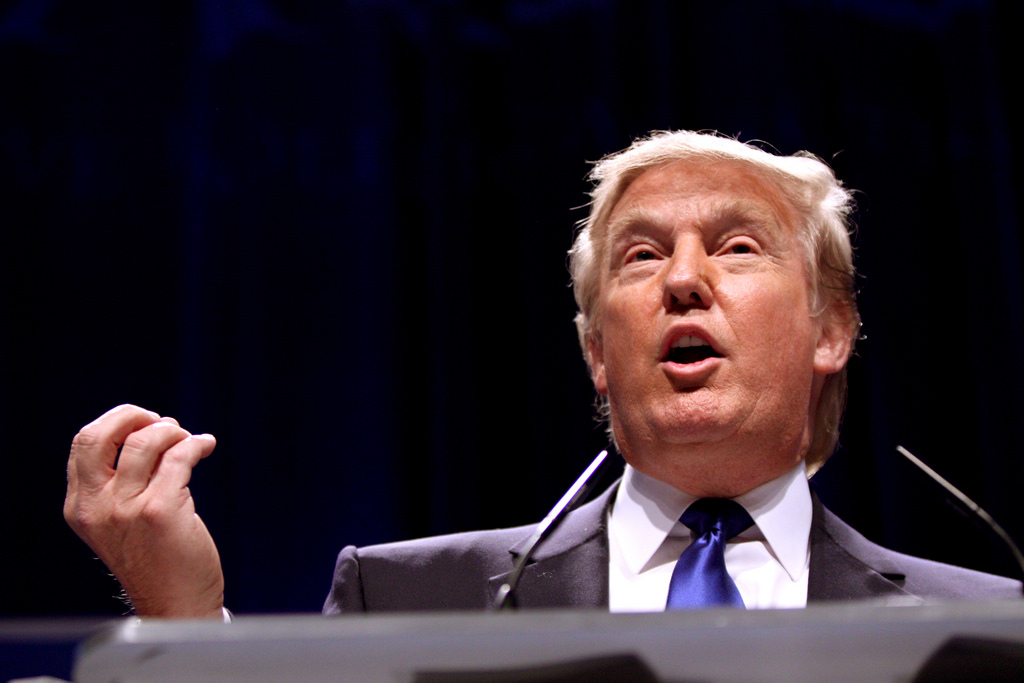The only certainty about US President-elect Donald Trump’s incoming administration is the uncertainty that will attend it. Remaining unpredictable may be a successful tactic in business, but it is an unsettling, even dangerous, trait for the leader of the world’s most powerful country. This is especially true with respect to three sensitive policy areas.
The first is the US economy and its impact on all other countries’ economies. If Trump cuts taxes and manages to enact a massive infrastructure program, America’s budget deficits will rise, perhaps dramatically. This, together with the Federal Reserve’s gradual interest-rate hikes, will strengthen the dollar, weaken so-called emerging-market currencies, and shift money from the rest of the world to the US.
As Latin American, Asian, and African countries’ currencies depreciate, their reserves will plummet or their own interest rates will spike, and inflation will rise. For economies that have been barely holding on since the recent commodities boom ended, this is a worrying, if not terrifying, prospect.
On the other hand, Trump might maintain his aura of unpredictability by not pursuing tax cuts, significant infrastructure spending, or even his promised Mexican border wall. In that case, the US economy would not heat up, the stock market’s rally might reverse, the Fed might postpone new interest rate increases, and American deficits would not spiral out of control, as they did during George W. Bush’s presidency, following the September 11, 2001, terrorist attacks.
Emerging economies would not suffer too much in this scenario, and they might even benefit from a prudently valued dollar and a deficit- and inflation-free American economy. But, as long as Trump projects uncertainty, he will effectively create worst-case-scenario conditions, because markets, investors, central banks, and governments have no choice but to prepare for the worst, even if they are hoping for the best.
The same can be said for Cuba, a country that is acutely vulnerable to Trump’s promises to roll back President Barack Obama’s policies. Because Congress refused to normalize US-Cuba relations by repealing the US embargo, Obama was forced to resort to legally reversible executive orders to loosen restrictions on travel, remittances, and trade and investment.
Trump, for his part, has promised to undo all of this unless he can get “a better deal for the Cuban people, the Cuban-American people, and the US as a whole.” Though he has not specified what he means by this, he seems to want more concessions on human rights from Raúl Castro, in exchange for the unilateral concessions already made by the Obama administration. This is a nonstarter: the Castro regime is not going to do what it has never done and negotiate internal political issues with another country. So no one knows if the Obama administration’s Cuba policy will remain in place under Trump.
If it does not, the tourism industry will suffer the most. Now that major airlines have flights to and from the island, Cuban-Americans and any other tourists can travel there freely, which means that there are investment opportunities in hospitality, telecommunications, transportation, retail banking, and other related industries. But, now that Trump could possibly cancel all those flights, it would be madness for anyone to commit, say, $200 million to refurbishing Havana’s José Martí International Airport.
Once again, the continued uncertainty weighs most heavily not only on Cuba, but on potential investors, who must assume the worst. No smart investor is going to bet on Trump acting sensibly, and plunge ahead into Cuba when the rules of the road are subject to change. And those rules will remain unclear for some time in Mexico as well – another country that will be disproportionately affected by Trump’s words and actions.
During his campaign, Trump did everything he could to offend Mexico and the Mexican people, and to shroud future US-Mexican relations in uncertainty, by promising to build the border wall, deport undocumented Mexican immigrants en masse, and renegotiate or withdraw the North American Free Trade Agreement. There is an ongoing debate in Mexico today over whether any of this will actually happen, and how the country should respond if it does, especially with regard to the abrogation of NAFTA.
According to Trump, the US has suffered a net job loss under NAFTA, because Mexican workers are paid lower wages for work that was previously done in the US. But NAFTA’s US-based supporters and many Mexicans argue that the deal actually created more American jobs than were lost in Rust Belt states that Trump won in the election, because it increased US exports to Mexico. Either way, imposing tariffs on imports from Mexico would merely operate as a tax on US consumers. There is room for negotiation, and a new, better NAFTA could eventually address all member countries’ concerns.
Uncertainty may as well be Trump’s middle name, and he might even welcome that moniker. But for nearly everyone else, Trump’s unpredictability is an albatross. Come January 20, all countries that deal with the US will have to make minimizing the burden of his administration one of their highest priorities.





